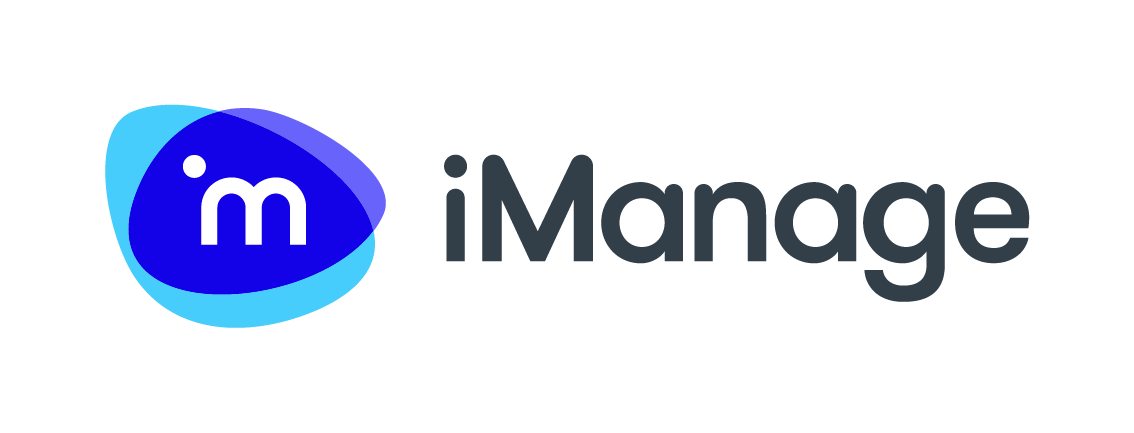Managing documents in a law firm is more than keeping files in order. It's about protecting client confidentiality, maintaining compliance, and making sure your team can find the right file at the right time. Whether you're a solo attorney or part of a large legal operation, a strong Document Management System (DMS) is no longer optional—it's essential.
With so many tools on the market, choosing the right legal DMS can be overwhelming. So, we've pulled together a carefully curated list of the top 10 law firm document management software options to help you navigate your choices.
What Is a Legal Document Management System?
A legal DMS is a software solution built to help law firms organize, store, track, and manage digital documents securely. Unlike standard file storage, a DMS provides version control, encryption, advanced search, audit trails, and integration with other legal software.
Some also include compliance tools for managing sensitive information, like trust documents and discovery files, within ethical and legal frameworks.
What to Look For in Law Firm Document Management Software
Before diving into the top tools, here are a few things you should evaluate:
- Security & Compliance: Does it offer encryption, user permissions, and audit logs? Is it compliant with legal standards (like GDPR or FedRAMP)?
- Cloud-Based Access: Can you securely access your files from anywhere?
- Integration: Does it work with your existing software, such as Clio, MyCase, or Microsoft 365?
- Version Control: Can you track document edits and revert changes if needed?
- Search & Retrieval: How fast and easy is it to find documents by keywords, tags, or metadata?
- Ease of Use: Is it intuitive enough for non-technical staff?
- Customer Support: How responsive and helpful is the support team?
The Top 10 Legal Document Management Software Options
Let’s break down the best options available today.
1. NetDocuments

Overview: NetDocuments is a cloud-based document management system built specifically for legal professionals. Known for its unmatched security, compliance features, and reliability, it’s a top choice for law firms that prioritize client confidentiality and need enterprise-grade tools.
Its scalable structure makes it suitable for growing firms and complex legal environments.
Key Features:
- End-to-end encryption
- Federated search
- Document versioning
- Email management
- Built-in compliance and audit tools
Pros:
- Excellent for firms with strict security requirements
- Strong integration with Microsoft Office
- Scalable for growing firms
Cons:
- May be too complex for solo or small practices
- Higher pricing tier
Best for: Mid-size to enterprise-level law firms
2. iManage

Overview: iManage is a powerhouse platform trusted by some of the world’s largest law firms. It combines advanced document and email management with AI tools that help legal teams organize, find, and protect their content.
If your firm juggles high-volume cases and needs strong compliance, iManage is worth a serious look.
Key Features:
- AI-powered document search
- Email and file integration
- Secure collaboration tools
- Compliance reporting
Pros:
- Robust permissions and access controls
- Enterprise-level document security
- Great for document-heavy practices
Cons:
- Requires onboarding support
- Steeper learning curve
Best for: Large law firms with complex workflows
3. Clio Manage

Overview: Clio Manage offers more than case management—it includes a practical document management solution tailored to small and midsize law firms. Everything is connected: matters, billing, clients, and documents. It's ideal for firms that want a centralized system without adding new software to their stack.
Key Features:
- Document storage and sharing
- E-signature support
- Integration with Dropbox, Google Drive, and OneDrive
- Task and case linking
Pros:
- All-in-one platform
- Easy to use
- Great customer support
Cons:
- Not a standalone DMS
- Limited advanced DMS features
Best for: Solo and small law firms
4. LexWorkplace

Overview: LexWorkplace is a modern, cloud-native DMS designed just for law firms. Unlike generic file-sharing apps, it includes legal-specific features like document profiling, ethical walls, and Microsoft 365 integration. It’s especially popular with firms that want the flexibility of the cloud without giving up control.
Key Features:
- MS 365 integration
- Document profiling and tagging
- Client/matter-centric storage
- Email management
Pros:
- No servers or on-prem hardware needed
- User-friendly interface
- Built-in email management
Cons:
- Limited market awareness compared to bigger names
- Not ideal for very large firms
Best for: Small to midsize law firms
5. Worldox

Overview: Worldox is a veteran in the legal DMS space, offering both on-premise and cloud options. It’s built for law firms that want full control over how their documents are stored and accessed, with tools like version control, document profiling, and deep Outlook integration.
Key Features:
- Document indexing
- Granular user permissions
- Matter-centric organization
- Mobile access
Pros:
- Time-tested solution
- Powerful search tools
- Flexible hosting options
Cons:
- Dated user interface
- Requires IT support for updates
Best for: Traditional law firms used to on-prem systems
6. MyCase

Overview: MyCase simplifies practice management by combining client communications, calendaring, billing, and document storage in one place. Its document features are easy to use and perfect for firms that want a simple, affordable way to share and manage files internally and with clients.
Key Features:
- Centralized document hub
- Document sharing with clients
- E-signatures
- Mobile-friendly access
Pros:
- Easy for clients to use
- Affordable pricing
- Built-in billing and calendaring
Cons:
- Limited DMS-specific features
- Not as customizable
Best for: Small firms and solo practitioners
7. PracticePanther

Overview: PracticePanther is a cloud-based platform that offers a user-friendly document management system alongside case management and billing. With eSignature tools, tagging, and automation features, it helps firms keep their workflows tight and documents organized without the learning curve..
Key Features:
- Legal document templates
- Document sharing and e-signatures
- Cloud syncing with Box, Dropbox, Google Drive
- Workflow automation
Pros:
- Clean UI
- Time-saving automations
- Good customer service
Cons:
- Document tagging and metadata is basic
- Requires setup for optimal use
Best for: Growing law firms looking for practice + document management
8. Smokeball

Overview: Smokeball is a hybrid DMS that works on your desktop but syncs to the cloud—offering the speed of local access and the flexibility of remote storage. With features like document templates and automatic activity tracking, it’s a smart fit for busy small firms with document-heavy workflows.
Key Features:
- Automatic time tracking
- Document automation
- Integrated Word and Outlook tools
- Case-centric storage
Pros:
- Great for high-volume document firms
- Streamlines case documentation
- Desktop application for Windows users
Cons:
- Not web-native (desktop-first)
- Learning curve for automation features
Best for: Litigation-heavy or document-heavy practices
9. CosmoLex

Overview: CosmoLex brings together accounting, time tracking, billing, and document management in a single system tailored to the legal industry. Its built-in DMS makes it easy for small firms to tie documents to client matters and financial activity without juggling multiple apps.
Key Features:
- Document storage and versioning
- Legal billing and trust accounting
- Secure client portal
- Email capture and management
Pros:
- Built-in accounting tools
- Affordable for small firms
- One platform for everything
Cons:
- Document features less advanced
- Slightly dated UI
Best for: Small firms wanting an all-in-one system
10. Filevine

Overview: Filevine combines project management and document handling into one powerful platform. Built for firms managing large caseloads or complex litigation, it offers unlimited storage, collaborative tools, and powerful search functions. If your team needs to move fast and stay organized, Filevine is built for that pace.
Key Features:
- Unlimited document storage
- Advanced search
- Custom templates and workflows
- API integrations
Pros:
- Highly customizable
- Strong collaboration tools
- Fast search functionality
Cons:
- Steeper learning curve
- Best suited for firms ready to invest time in setup
Best for: Mid-to-large law firms with custom workflow needs
Document Management Comparison Table
Final Thoughts: Choosing the Right DMS for Your Firm
Every law firm is different. A boutique firm handling a dozen cases a month won’t have the same needs as a litigation powerhouse with 500 employees. When picking a document management system, start with your firm’s priorities:
- Need strong compliance and security? Consider NetDocuments or iManage.
- Looking for an all-in-one platform? Try Clio Manage, MyCase, or CosmoLex.
- Want advanced automation and search? Filevine might be your fit.
- Prefer something tailored to legal workflows? LexWorkplace delivers a simple, clean solution.
Take advantage of free trials and demos before committing. And don’t forget to ask about onboarding, support, and future scalability.
The right DMS isn’t just a convenience—it’s a tool to help your firm operate efficiently, ethically, and securely.
Need help improving your document collection process?
Consider hiring a virtual document collector who can streamline your intake, organize client files, and ensure your firm stays paper-free without disrupting operations.
Book a free demo or schedule a quick call to see how it fits your workflow.





.webp)